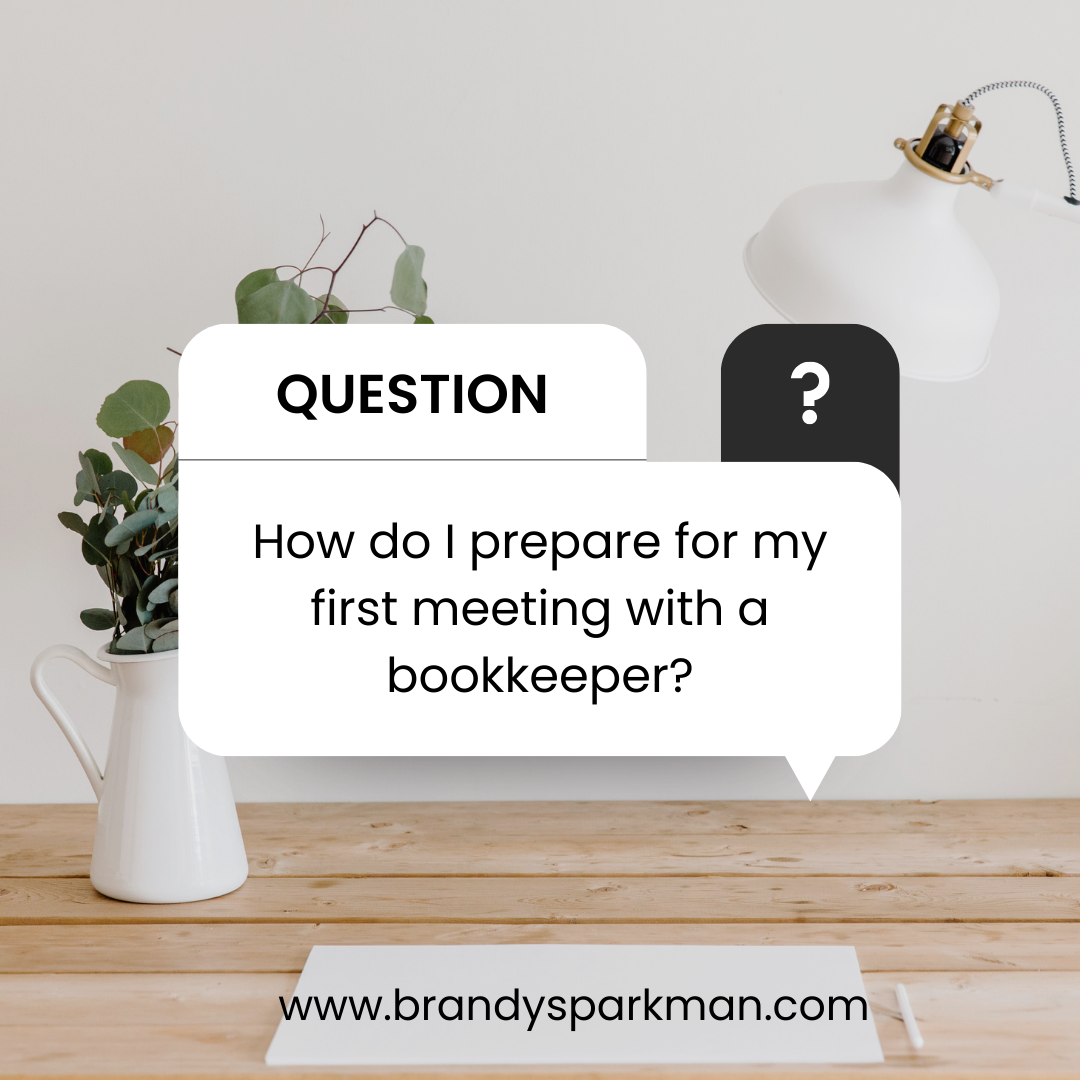Preparing for Your First Meeting with a Bookkeeper
As a small business owner, you might be wondering…
How do I prepare for my first meeting with a bookkeeper?
Hiring a bookkeeper marks a significant step towards better financial management for your small business. Your first meeting with a bookkeeper sets the tone for your collaboration and lays the groundwork for a successful partnership. To ensure a productive discussion, it is important to come prepared. In this blog post, we explore how you can effectively prepare for your first meeting with a bookkeeper.
Assess Your Business's Financial Situation
Before meeting with a bookkeeper, take some time to evaluate your business's current financial situation. Review your financial records, including bank statements, invoices, and receipts. Identify any areas of concern, such as irregularities in cash flow, outstanding invoices, or tax-related issues. Understanding your business's financial health will help you communicate your needs and priorities effectively during the meeting.
Compile Relevant Financial Documents
Gather all the necessary financial documents and paperwork that the bookkeeper may need to review. This may include bank statements, credit card statements, payroll records, tax returns, and any existing accounting records. Having these documents organized and readily available will streamline the discussion and enable the bookkeeper to gain a comprehensive understanding of your financial situation.
Define Your Goals and Expectations
Clarify your goals and expectations for working with a bookkeeper. Consider what you hope to achieve through this partnership, whether it is improving financial reporting accuracy, optimizing cash flow, or preparing for tax season. Communicate your expectations regarding the bookkeeper's role, responsibilities, and level of involvement in your business's financial management.
Prepare Questions and Discussion Points
Prepare a list of questions and discussion points to cover during the meeting. This may include inquiries about the bookkeeper's experience, qualifications, and approach to bookkeeping. Ask about their familiarity with your industry and specific accounting software or tools. Additionally, discuss how they handle data security and client confidentiality to ensure your sensitive financial information remains protected.
Consider Workflow and Communication Preferences
Think about how you prefer to work with a bookkeeper and communicate your preferences during the meeting. Discuss your preferred workflow for sharing financial information and documents, as well as your expectations for communication frequency and responsiveness. Establish clear communication channels, such as email, phone, or virtual meetings, to facilitate ongoing collaboration.
Address Any Concerns or Questions
Use the meeting as an opportunity to address any concerns or questions you have about the bookkeeping process. Don't hesitate to seek clarification on unfamiliar terms or concepts related to bookkeeping. Express any specific challenges or pain points you have encountered with your current financial management practices and discuss how the bookkeeper can help alleviate them.
Outline Next Steps and Follow-Up Actions
Before concluding the meeting, summarize the key takeaways and outline the next steps and follow-up actions. Confirm any tasks or preparations required from both parties before officially engaging the bookkeeper's services. Schedule follow-up meetings or consultations as needed to continue the discussion and move forward with the onboarding process.
Conclusion
Preparing for your first meeting with a bookkeeper lays the foundation for a successful and collaborative partnership. By assessing your business's financial situation, compiling relevant documents, defining your goals and expectations, preparing questions and discussion points, considering workflow and communication preferences, addressing concerns or questions, and outlining the next steps, you can ensure a productive discussion that sets the stage for improved financial management for your business.

